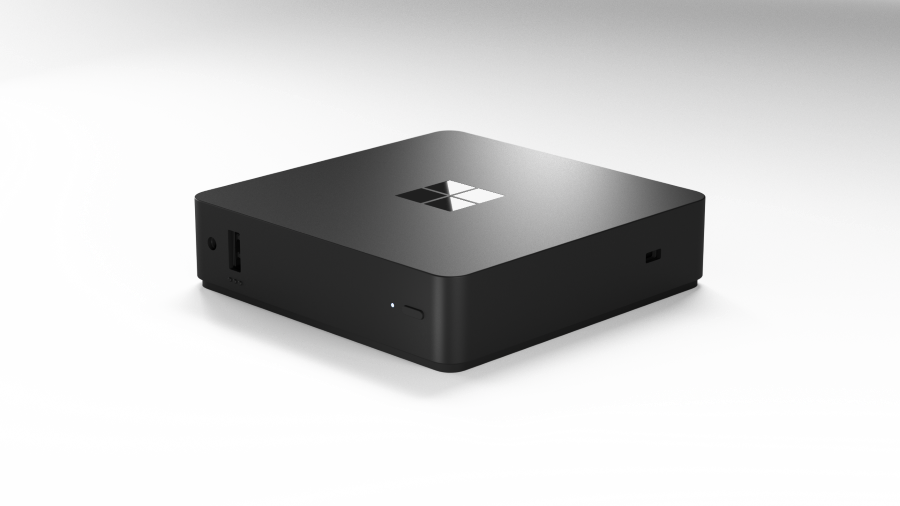
Why Apple’s M4 Mac mini is far superior to Microsoft’s new Windows 365 Link
Microsoft has unveiled Windows 365 Link, its first Cloud PC device designed to connect seamlessly with Windows 365. While this compact device offers businesses a way to streamline productivity with quick cloud access, the question remains: is it truly competitive when pitted against Apple’s more powerful $599 M4 Mac mini? The answer might tilt in Apple’s favor, as the M4 Mac mini not only provides significantly more local processing power but also offers a better value for businesses looking for comprehensive computing solutions.
Windows 365 Link is marketed as a simple, cloud-powered device that enhances productivity, supporting dual 4K monitors, four USB ports, Ethernet connectivity, Wi-Fi 6E, and Bluetooth 5.3. It’s quick to boot up and wakes from sleep almost instantly, designed for users to pick up where they left off on their cloud desktops. These features cater to shared workspace needs and provide a secure environment with no local data or apps.
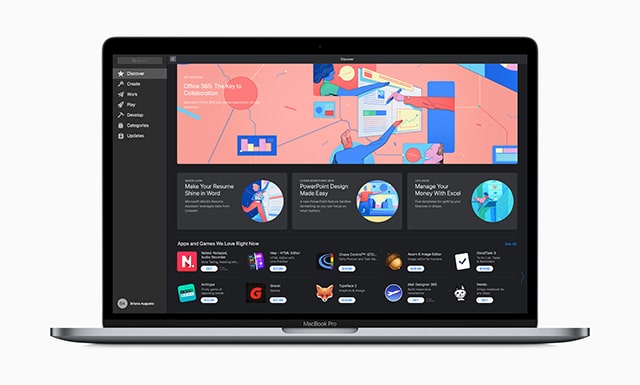
Microsoft Office 365 arrives in the Mac App Store for the first time
Although there are lots of office suites to choose from, including plenty of free offerings, Microsoft Office remains the most popular choice.
For Mac users, previously the only way to get Microsoft Office was by going to Microsoft's website and downloading it from there. Now though, Word, Outlook, Excel, PowerPoint, OneNote and the whole suite of Microsoft’s popular apps are available to download directly from the Mac App Store.

Microsoft market capitalization (briefly) tops Apple (again)
In May 2010, I wrote about Apple's market cap passing top-valued Microsoft; it's only fitting to follow up with an analysis about the unbelievable turnabout that, like the first, marks a changing of technological vanguards. Briefly today, the software and services giant nudged past the stock market's fruit-logo darling. A few minutes after 1 p.m. EST, the pair's respective market caps hovered in the $812 billion range, with Microsoft cresting Apple by about $300 million. By the stock market close, a rally for Apple put distance from its rival: $828.64 billion to $817.29 billion, respectively (Bloomberg says $822.9 billion, BTW). Consider this: As recently as October, Apple's valuation touched $1.1 trillion. But since the company announced arguably record fiscal fourth-quarter earnings on November 1st, investors have punished shares, which currently are down about 21 percent.
Apple has long been a perception stock, even when under the tutelage of CEO Tim Cook company fundamentals deserved recognition. But perhaps Wall Street finally realizes the problem of iPhone accounting for too much of total revenues at a time when smartphone saturation saps sales and Apple pushes up selling prices to retain margins. More significantly: Apple has adopted a policy of fiscal corporate secrecy by stepping away from a longstanding accounting metric. I started writing news stories about the fruit-logo company in late 1999. Every earnings report, Apple disclosed number of units shipped for products contributing significantly to the bottom line. No more. Given current market dynamics, everyone should ask: What is Cook and his leadership team trying to hide?
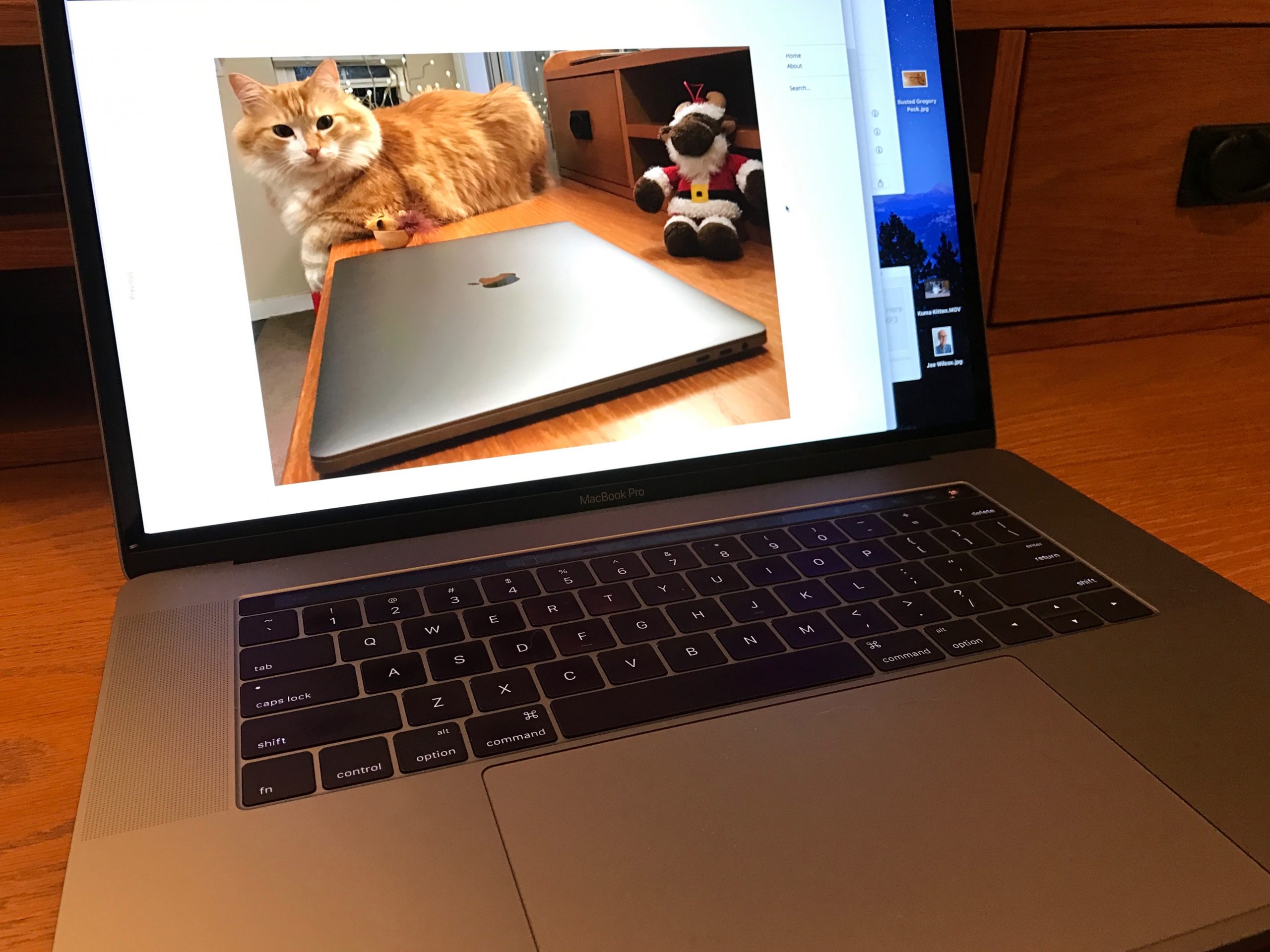
I chose MacBook Pro with Touch Bar over Surface Book
Water smacked the windshield -- a torrent of heavy droplets -- as my wife struggled to feed money into the tollbooth machine. Pelting rain is uncommon during November in San Diego, but we had purpose for driving 36 km through the downpour to Chula Vista and the Otay Ranch Apple Store, where I had never been before. The shop was the only one around that had the 15.4-inch MacBook Pro with Touch Bar in stock.
Eleven days earlier, Nov. 15, 2016, I received the 13.3-inch model that was ordered on October 27th. While first impressions were wow, the laptop felt slow compared to my previous MBP, and the battery drained in about half the time as specs stated. I worried that Apple produced a defective unit. No store in the area had the smaller laptop in stock, should I want to take advantage of the 14-day return policy. Deadline approached, so I considered as alternative my first 15-incher in more than a decade, tempted in part by quad-core processor and discreet graphics.

IDC was so wrong about Windows Phone
I laughed so hard and so often at IDC's smartphone forecast, my response took nine days to write -- okay, to even start it. The future isn't my chuckable -- that data looks reasonably believable enough -- but the past. Because 2016 was supposed to be the year that Microsoft's mobile OS rose from the ashes of Symbian to surpass iOS and to challenge Android.
In 2011, IDC forecast that Windows Phone global smartphone OS market share would top 20 percent in 2015. The analyst firm reiterated the platform's No. 2 status for 2016 in 2012 as well. Not that I ever believed the ridiculous forecasts, writing: "If Windows Phone is No. 2 by 2015, I'll kiss Steve Ballmer's feet" and "If Windows Phone is No. 2 by 2016, I'll clean Steve Ballmer's toilet". The CEO's later retirement let me lose from those obligations had I been wrong. I was confident in my analysis being truer.
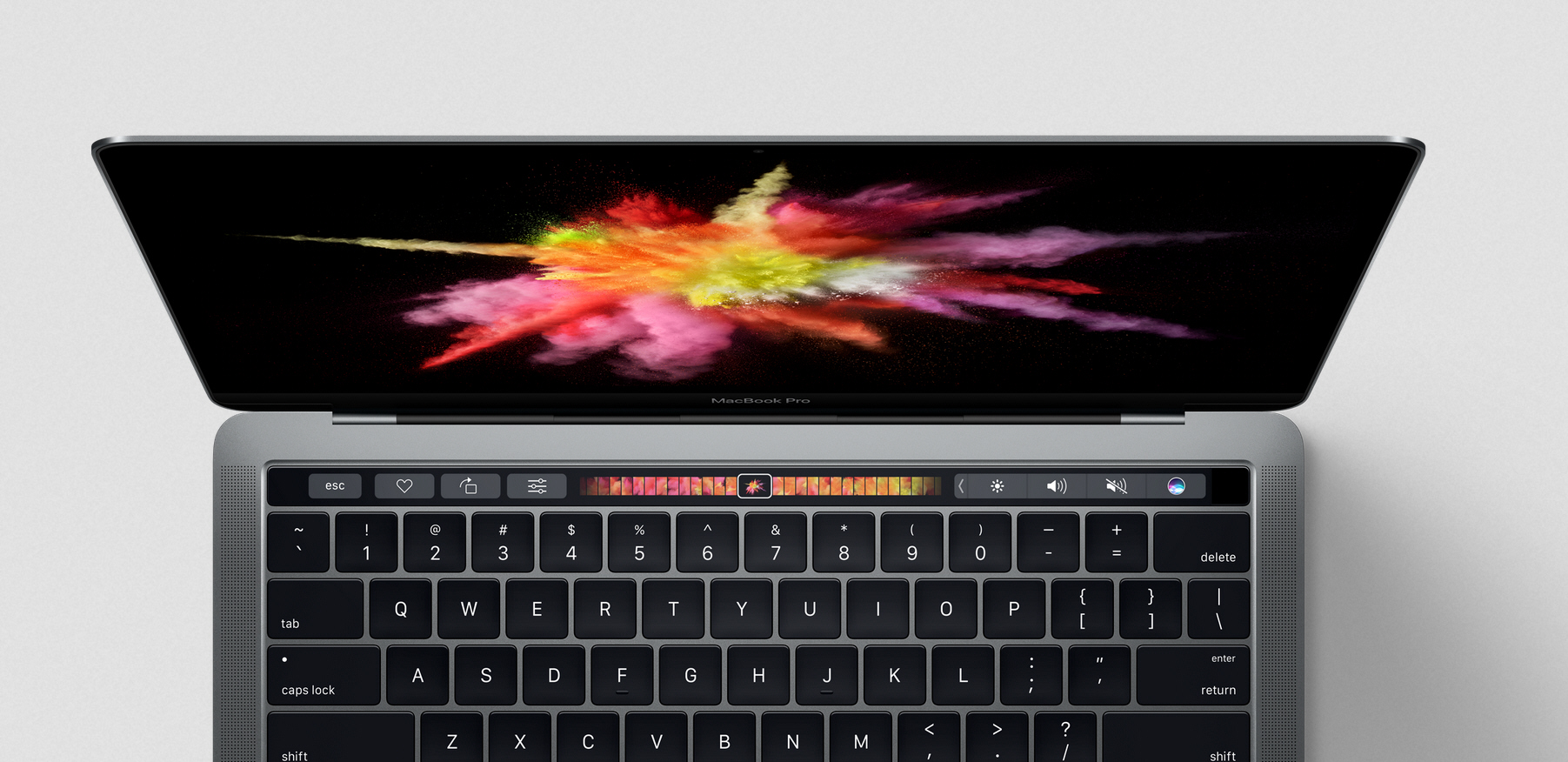
Microsoft Surface Book i7 vs Apple MacBook Pro 2016: Which new laptop should you choose?
Last Wednesday, Microsoft revealed, among other things, an updated Surface Book. The following day, Apple introduced a new MacBook Pro. Both devices look great, sport powerful innards and come with a suitably high price tag.
Which you go for will likely depend on whether you’re a fan of Microsoft or Apple, but if you’re not firmly entrenched in either camp, and need a little guidance to decide which laptop to go for, here are all the details you need.

Microsoft trolls Apple for peace
Advertising rarely gets as good as this! Microsoft sets the mood for the season in a new spot where its New York store staffers serenade Apple specialists for "peace on Earth". A children's choir joins the caroling, creating a classic! This is award-winning advertising in the making. Filming at night adds terrific ambiance, topped off with Apple 5th Avenue Store employees embracing their Microsoft retail rivals.
If Microsoft is the British Empire, then Apple is the American era. Oftentimes, the mighty are arrogant and condescending about their dominance, and it's rare that they sue rivals for peace -- from a position of dominance. The humbled fallen must adopt new tactics in the New World order. For Microsoft, that means cooperation. If nothing else, the commercial is a metaphor for the new Microsoft.
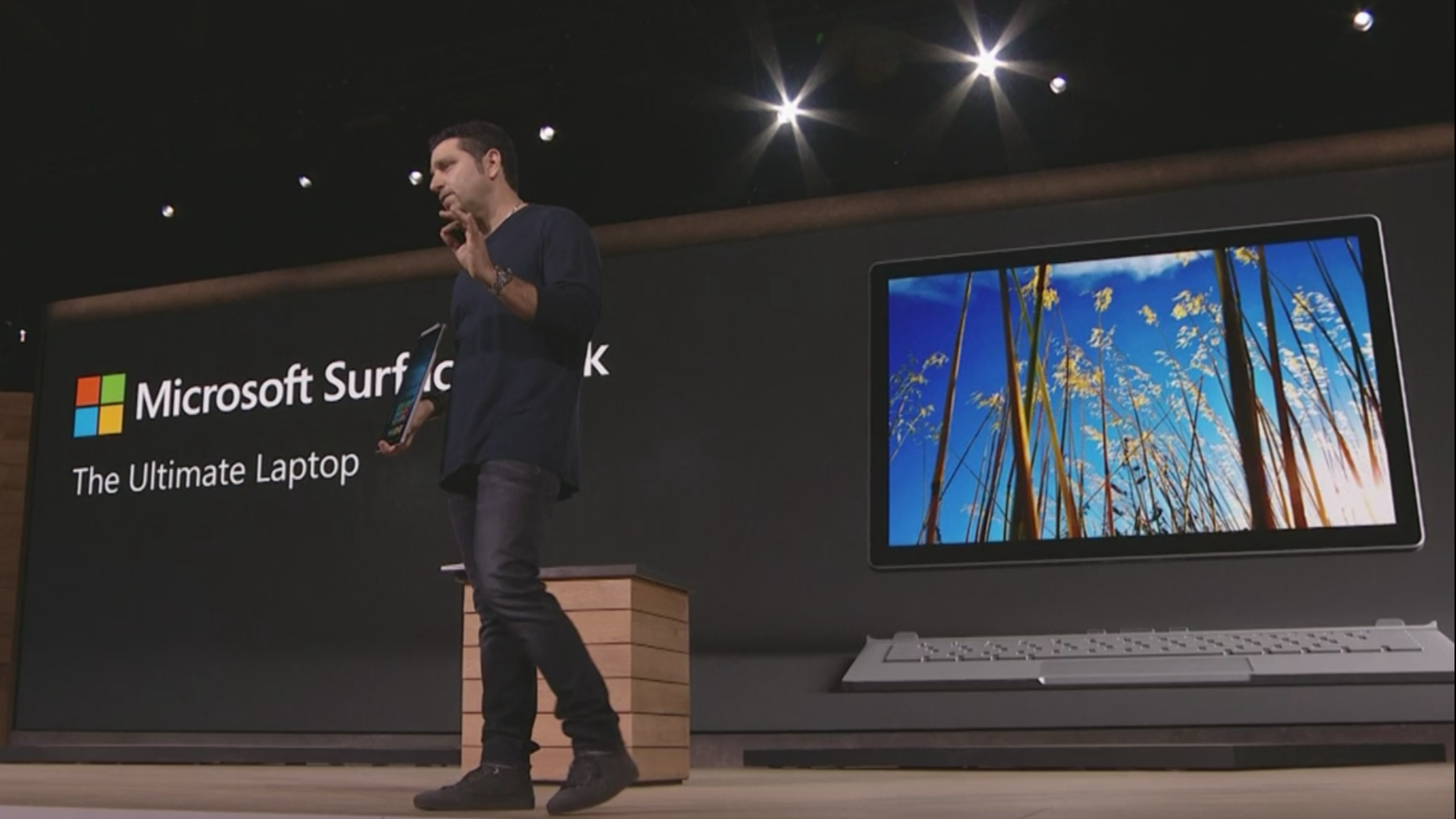
Microsoft is back!
That grinding against wood and dirt you hear is the sound of Steve Jobs rolling over in his grave. Microsoft is back! And badass! Today's Surface event in New York City outclasses Apple by every measure that matters: Aspiration, innovation, presentation, and promotional marketing. Microsoft proves that it can build end-to-end solutions—hardware, software, and services—as good as, and better than, the company cofounded by Jobs. Even more importantly: Present the new wares well. Today's event was exceptional.
But there is a shadow looming in the brightness that will matter to some Microsoft customers and not to others: Cost. Surface Book, for all its seeming greatness, is a budget-busting laptop for the majority of potential buyers. The low-cost config, at $1,499, comes with 6th-gen Intel Core i5 processor, 8GB RAM, and 128GB storage. To get the discreet graphics demoed today, with i7 chip, 8GB memory, and 256 SSD, you will spend $2,099. Doubling RAM and storage raises the price to $2,699.
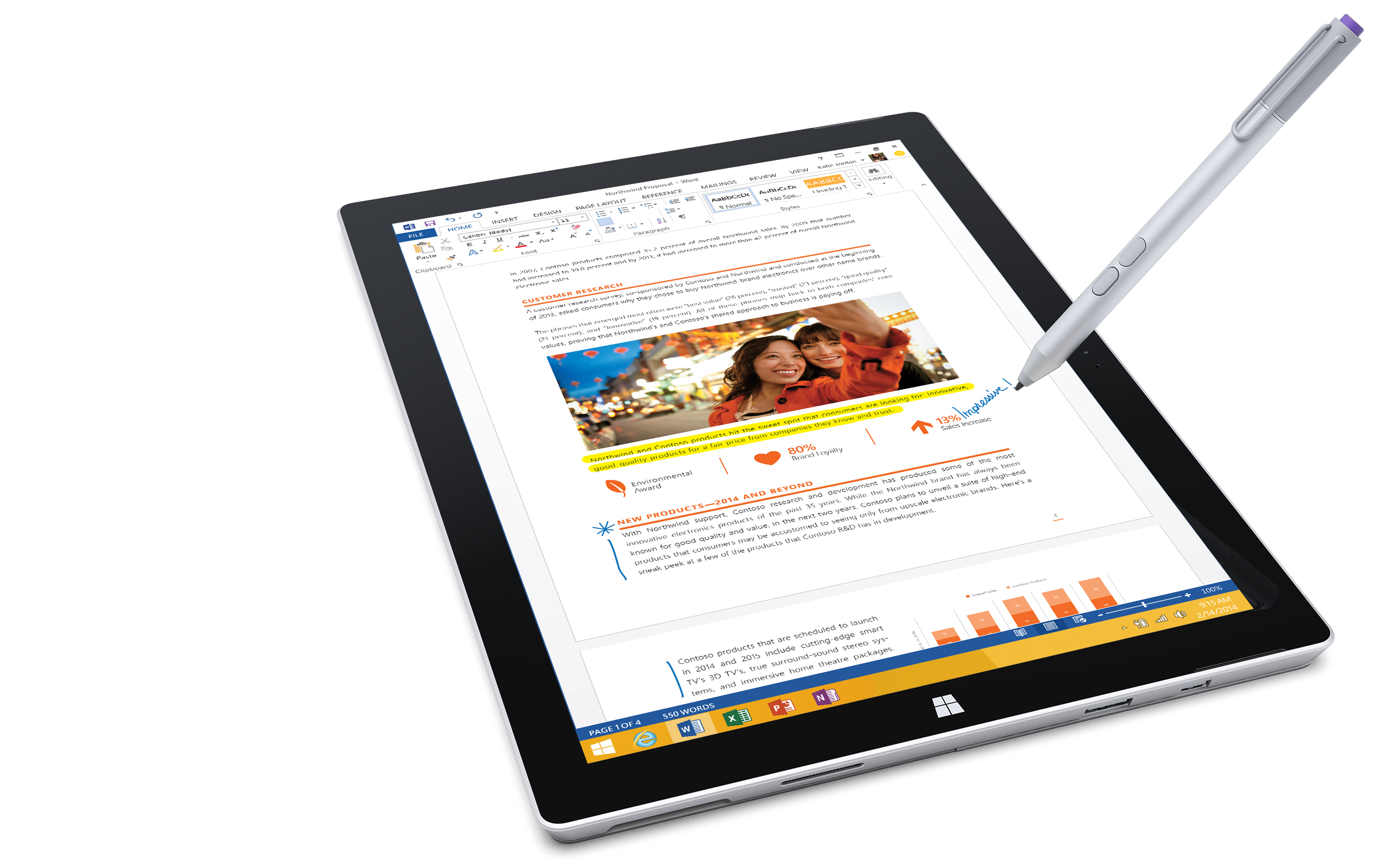
Your next PC will look like Microsoft Surface
The days of the traditional “clamshell” laptop are numbered. With every major hardware vendor (even Apple) now embracing the detachable keyboard format of Microsoft’s Surface device, the writing is on the wall -- or more accurately, on the digitized, pen-enabled screen.
With all of this newfound Surface love it’s hard to believe that, just a few months ago, Microsoft’s attempt to set a qualitative (and aesthetic) example for its hardware OEMs to follow was mocked and openly dismissed by its suddenly hostile partners. The Dells and HPs of the world were too busy experimenting with awkward tablet-like PC device designs that bent, folded or clicked into equally awkward base units, and they certainly didn’t appreciate Microsoft jumping into the market with its own, competing devices.

iPad Pro is DOA in the Enterprise
Even before Apple officially unveiled its new “professional” grade tablet, the seeds of its demise were being sown. The culprit? None other than arch-rival Microsoft which, by partnering with Hewlett Packard and Dell to distribute and support its Surface Pro line of products, essentially locking-down the enterprise tablet market once and for all.
Some were confused by the recent announcement that these two PC industry stalwarts would agree to resell Microsoft hardware, at least in the enterprise. After all, both HP and Dell produce products designed to compete with Microsoft’s Surface lineup. By adding the Surface Pro 3 (and eventually, Surface Pro 4) to their catalogs, they seemingly risk cannibalizing their own device sales.
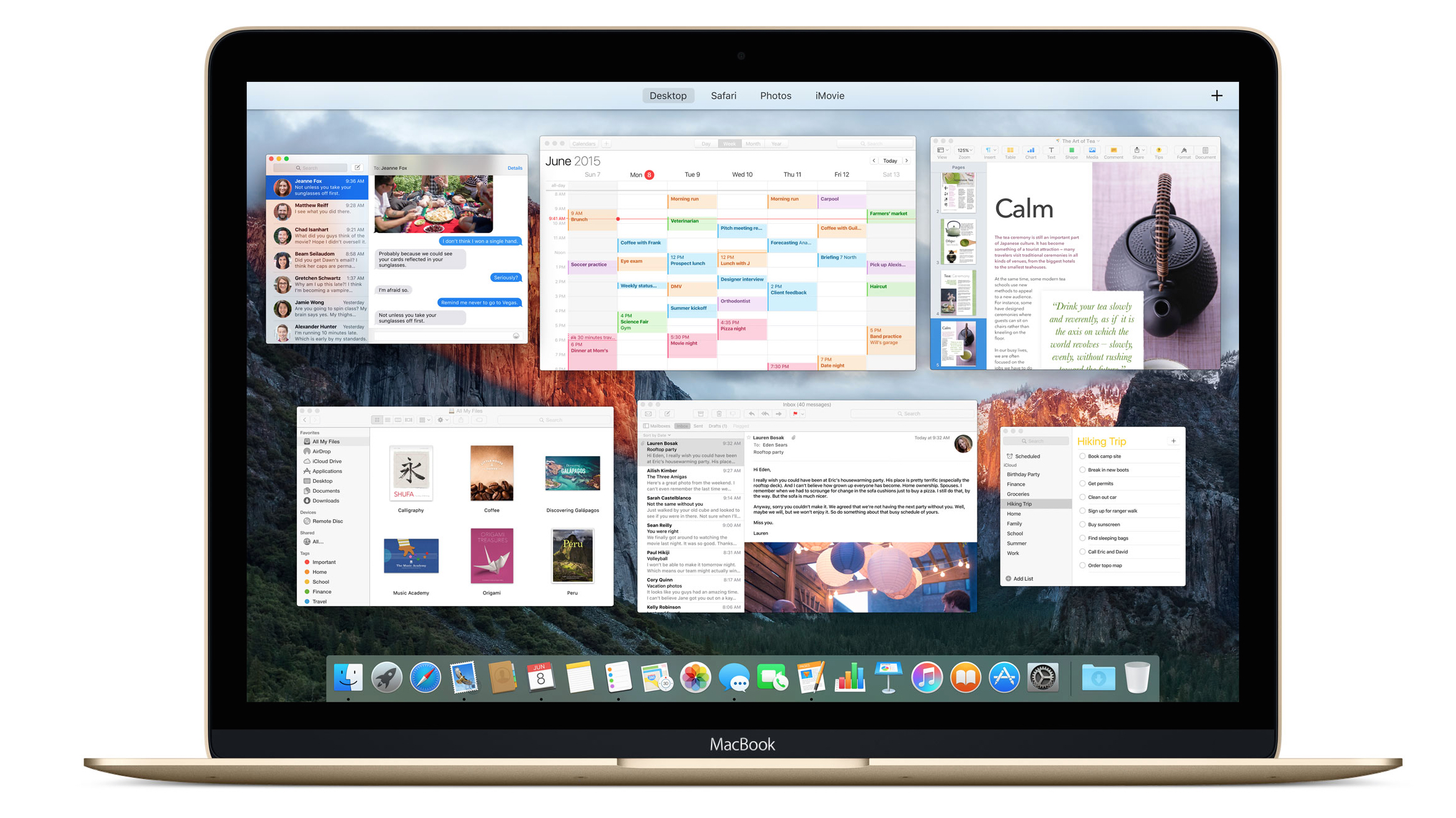
Microsoft can only blame itself
Apple has a long history of competitive marketing one-upmanship. Major tactic is the artful leak timed around someone else's major product announcement or event. How many times has the company stolen CES participants' thunder without ever attending the event, for example? Occasionally, the showstopper is accidental, as is the case with OS X El Capitan.
I wonder: What were the Microsoft development and marketing teams thinking when they chose July 29th as Windows 10's release date? It's like stepping off the curb in front of a fast-moving, energy-efficient, gas-powered bus. Apple almost certainly will release the OS X 10.11 Public Preview before Windows 10 drops. The company promises July and has every reason to rub Microsoft's nose in the stink.
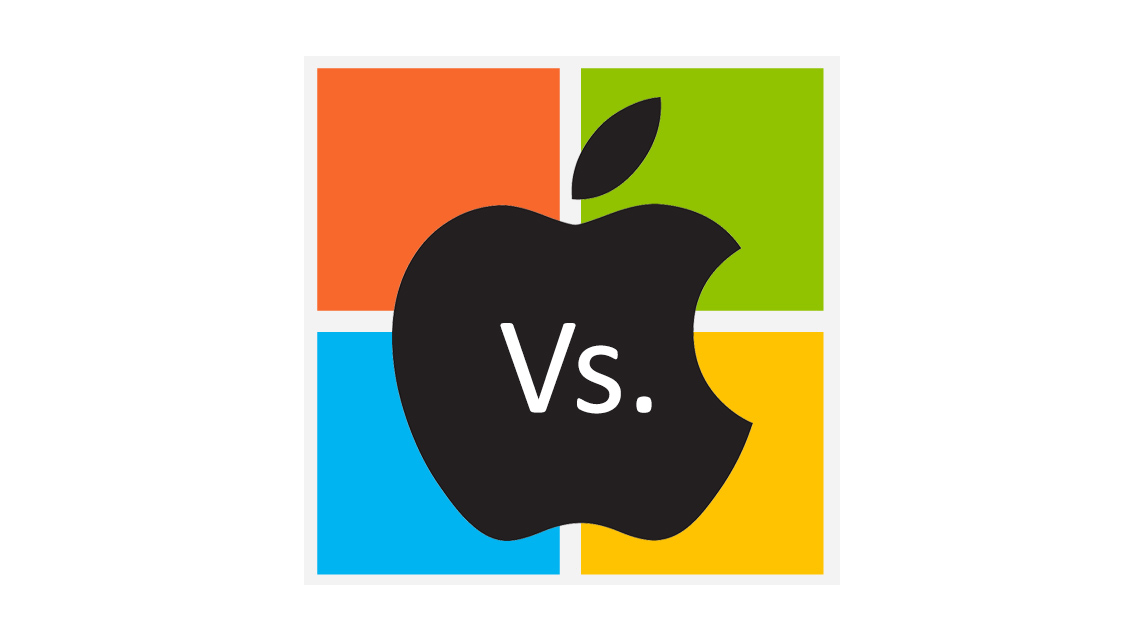
Microsoft vs. Apple -- Which has the most loyal and satisfied customers?
When you think of the great tech rivalries, it’s unquestionably Microsoft vs. Apple that springs to mind -- after all the two firms have been battling it out for close to 40 years. Microsoft was the dominant force for much of that time, until Apple surged ahead to become the most valuable company in the world.
Both tech giants have massive, and incredibly loyal fan bases. When we write something negative or overwhelming positive about either company’s products on BetaNews, the fanboys come out in force, accusing us of bias or being on one of the firm’s payrolls. So surely it’s time to find out which company has the most loyal and satisfied customers -- will it be Microsoft or will it be Apple? Place your bets now…

Hey Apple, you can learn a thing or two from Microsoft's Windows 10 event
There once was a time when the entire world would anticipate an Apple launch event. While there is still some interest nowadays, much of it dissipated when Steve Jobs died. In other words, most of the magic was Jobs -- he was a genius innovator, but more importantly, an epic salesman.
Tim Cook is a nice fellow, but he just is not Jobs. Today, some of that launch event magic returned, but it was not by Apple and not in California. Nope, this was Microsoft's day to shine -- a sea change if you will -- as the winds of innovation came to the state of Washington. Unlike Apple, this is no one man show; Microsoft's presentation was a team effort, where products were more important than the presenter. I hope Tim Cook and the fruit-logo company were taking notes today.
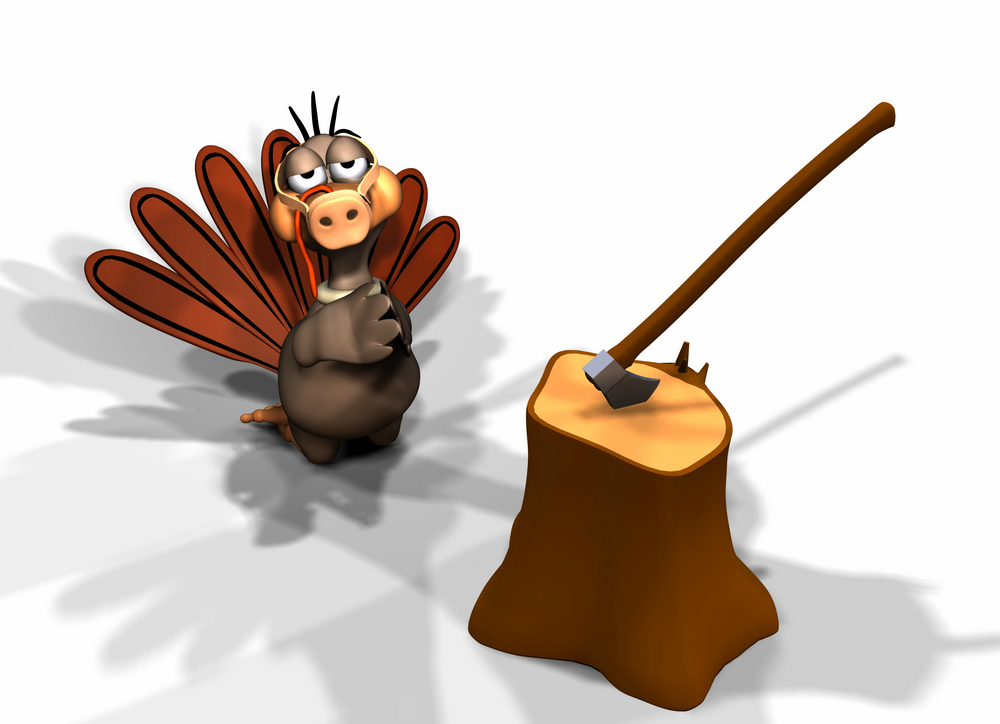
Google can count many blessings this Thanksgiving
While I keep the list short this year, it wouldn't be U.S. Thanksgiving without my writing about gratitude, and why some tech company's executives, employees, and partners should prostrate and pray "Thanks".
Let's start off with Google, which continues a great run that started with Larry Page's return as CEO in April 2011. If he's not all smiles this Turkey Day, someone should slap that man aside the head. I could tick off a hundred things for which he should give thanks. For brevity's sake, so you can get back to the big game and bigger bird, I select some things that might not come to mind.

Isn't Siri just terrible in Microsoft's Windows Phone ads?
The advert wars continue with comparative ads aplenty fired at each other by the big tech giants, and the latest one extols the virtues of Microsoft's voice assistant compared to Apple's effort.
The "mirror mirror" commercial (spotted by the Verge) tries to promote the natural voice and manner of Cortana, and contrast it with Siri, which is made to sound clipped and robotic in comparison.
